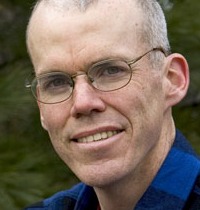All eyes were on former FoxNews angerman Tucker Carlson yesterday, as his owners pushed him from the nest. They offered the tersest of statements and no explanation, but coming on the heels of the giant settlement in the Dominion voting systems case, it seems plausible that the Murdochs had decided he was a liability, not an asset. A $787 million settlement can change your outlook.
But something else happened yesterday too, with a price tag that may eventually dwarf that settlement, and with even larger potential implications for the future of the planet. The Supreme Court, also tersely, declined to grant cert in a case brought by oil companies desperately trying to hold off state court trials for their climate crimes.
To make a long story short: Eight years ago, journalists—led by Inside Climate News and the LA Times—began publishing stories proving that the big oil companies knew all there was to know about the dangers of global warming back in the 1980s. Among other consequences, this helped convince the legal departments of a number of cities and states to launch lawsuits against the oil giants, on the grounds that they’d done great and knowing damage to the taxpayers of these jurisdictions, who were having to clean up after the endless storms, fires, and floods.
This freaked out the industry, because it could see one possible future: a series of judgments large enough to bring it, like the tobacco industry, to its knees, forced to make some kind of general settlement just to stay in business. (This would be karmic payback of a high order, since Big Oil had hired pr veterans from the cigarette companies to help build out their climate denial campaigns).
And so they they’ve hit back on every possible front, from apparently launching a massive hacking campaign to surveil their opponents to employing their high-end legal talent in an effort to thwart those lawsuits or, barring that, to move them to federal court, figuring that (thanks in part to their longtime support of the GOP politicians who have filled the judiciary with their partisans) they’d never face real justice there.
But the Supreme Court yesterday refused to let them do that—the longstanding precedents giving state and local courts rights to hear cases like this about companies that do business in their jurisdictions were too high to overcome, even for this Court. And so the cases—in Baltimore, in Colorado, in a dozen other jurisdictions around the country—may now proceed.
“This was the right decision, and it is time to prepare for trial,” Sara Gross, who heads the Affirmative Litigation Division in Baltimore’s Law Department, told the Maryland Daily Record. “Since we filed this case nearly five years ago, the climate crisis has worsened, the costs to Baltimore taxpayers are skyrocketing, and the defendants have pocketed trillions of dollars in profits while trying to dodge accountability for their deception,” Gross said.
And here’s Nuria Rivera-Vandermyde, the city manager of Boulder, Colorado, which has seen catastrophic forest fires in recent years:
“There’s no doubt that climate change is very costly for local government. Taxpayer dollars are stretched to support key services, and the costs to prepare for and recover from climate disasters are too much for communities alone to bear. Today’s decision is a step toward justice. Colorado communities will have the chance to hold oil companies responsible for the hundreds in millions in damages their actions cause.”
Meanwhile, tee hee, the counsel for Chevron expressed sorrow that the ruling would complicate his client’s efforts to, um, solve global warming:
“These wasteful lawsuits in state courts will do nothing to advance global climate solutions, nothing to reduce emissions, and nothing to address climate-related impacts.”
The more pertinent sorrow, of course, is that they now have to try cases in jurisdictions across the nation (and perhaps around the world). The oil companies have made huge profits off Vladimir Putin’s invasion of Ukraine, but even that kind of money isn’t enough to begin to compensate for the damage that climate change has already caused, much less what it will cost in decades to come. (Check out a new Atlas of Climate Disasters that reads like a handbook for plaintiff’s lawyers seeking cases). Say you’re on a jury, and someone reads you a newly discovered memo from Shell dated 1989 and explaining that “‘climate-fuelled migration could swamp borders in the United States, Soviet Union, Europe, and Australia.’ “Conflict would abound,” the document said. “Civilisation could prove a fragile thing.” Perhaps you would vote for a large award.
If juries begin delivering massive damage awards in one place after another, at a certain point even the mighty oil industry may have to settle. The terms of that settlement could someday be the lever for the changes the world needs—above all, the agreement to wean the world off their products instead of trying to extend their business model indefinitely.
Cigarette smoke is no longer a ubiquitous feature of American life, in large part because of the power of the legal system. Maybe someday the smoke from fossil fuel will disappear as well, and for some of the same reasons. If so, yesterday will have turned out to be a bad day not just for gasbags, but for gas.
Teaser photo credit: Flooding near Key West, Florida, United States from Hurricane Wilma‘s storm surge in October 2005. By Averette (Marc Averette) – Own work, CC BY 3.0, https://commons.wikimedia.org/w/index.php?curid=3687420






